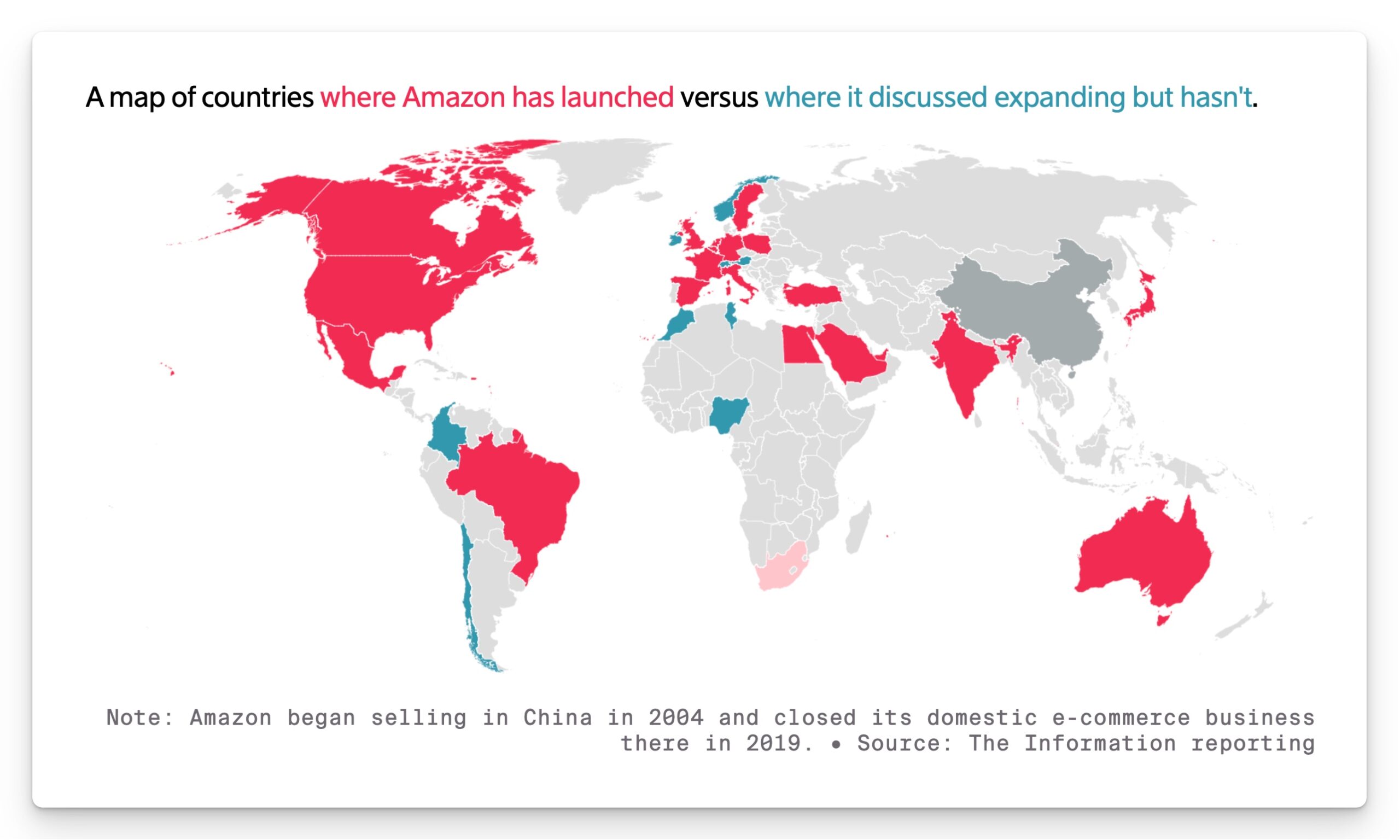
Por Contxto
March 7, 2024
Amazon has recently put a pause on its ambitious plans for global expansion, affecting its previously scheduled launches in Switzerland, Ireland, and other nations.
This strategic shift aims to enhance profitability within its international e-commerce operations. Previously, the company was poised to extend its digital storefronts into several new European countries and was exploring the introduction of a Nigerian e-commerce platform. These moves were part of a broader vision to captivate a global audience, with hopes of adding a billion more Prime members by offering localized content and services. Despite these grand plans, Amazon’s aggressive expansion has seen a notable slowdown. The only new European marketplace to materialize was in Belgium, launched in October 2022. Other discussed ventures into markets like Nigeria, Chile, and Colombia have been shelved.
This halt in launching new international sites in 2023 is an anomaly for the tech giant, which had consistently opened at least one new online storefront annually since 2016.
The decision to pump the brakes on global domination efforts aligns with Amazon CEO Andy Jassy’s broader cost-cutting measures.
Over the past two years, Jassy has closed down several unprofitable ventures and laid off more than 27,000 corporate staff. Although expanding Amazon’s reach internationally promises new growth avenues, it comes with hefty upfront costs and a long wait for financial returns. This new prudent approach has already shown signs of financial improvement, with a significant reduction in the operating loss from its international business sector, excluding AWS. Despite the current pause, Amazon’s ambition to grow its international presence remains undimmed. The company has announced plans to enter the South African market in 2024 and is also eyeing Ireland for a future launch.

Source: The Information: (link)
These steps suggest that while Amazon is momentarily holding back, it is not stepping away from its global aspirations. CEO Andy Jassy’s statements reflect a strategic patience, balancing immediate profitability with long-term expansion goals.
The company’s international endeavors are crucial for diversifying its revenue streams and reducing dependency on its North American operations.
Over the past decade, Amazon has launched in about a dozen new countries. However, the share of its revenue from outside North America, excluding AWS, has decreased. This underlines the challenges Amazon faces in replicating its domestic success on a global scale, amidst fierce competition and diverse consumer preferences. Amazon’s recalibration of its international strategy underscores the complexities of global e-commerce. While the company scales back to fortify its financial foundations, it remains poised to capture new markets when conditions are right.
This blend of caution and ambition reflects a mature approach to international expansion, balancing the pursuit of growth with the realities of a rapidly evolving digital landscape.

Por Contxto
June 6, 2024

Por Contxto
June 3, 2024